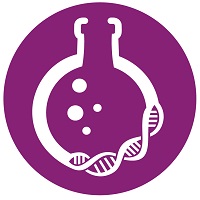Bioanalytics
Model Informed Assay Development Improves Understanding of ADA Assay Results
Wednesday, October 23, 2024
3:45 PM - 4:00 PM MT
Location: 151 ABCG

Gregor Jordan, M.Eng.
Senior Principal Scientist
Roche Diagnostics GmbH
Penzberg, Germany
Rapid Fire Speaker(s)
Immunogenicity testing, essential in drug development, assesses the immune response to therapeutic proteins and the formation of Anti-Drug-Antibodies (ADAs), which can affect drug safety and efficacy. Understanding the clinical relevance of ADAs is crucial but challenging due to ADA assays' analytical limitations, such as drug tolerance, polyclonal ADA responses, interference from soluble targets, and the absence of representative positive controls. These factors render ADA assays qualitative or semi-quantitative, potentially biasing incidence data. Overcoming drug interference and understanding ADA binding heterogeneity are key. Although proposals exist to improve drug tolerance, a satisfactory quantitative solution remains elusive. Model-informed assay development (MIAD) could address these issues by analyzing "analyte (ADA)-reagent complexes" at the assay's cut-point, potentially enabling true ADA quantification and better integration into pharmacokinetic/pharmacodynamic (PK/PD) models. This presentation will explore how MIAD can enhance our understanding of bioanalytical assays and their binding kinetics, which may lead to conditions for accurate ADA quantification.
Learning Objectives:
- Deeper understand the translation of an individual immune response (ADA) to an assay signal. What are the most important parameters of immunogenicity assays and how do they affect the result?
- ...understand the impact of the KD value of the interaction of ADA to the drug on the assay signal.
- ... to get a scientific rational why high sample dilutions might improve drug tolerance.
- ... that the reagent concentrations have a significant impact on drug toletance and optimal assay conditions can eliminate the residual drug impact.
- ... that we have do decide whether a high sensitive assay or a high drug tolerant assay has to be in focus of the assay development.


